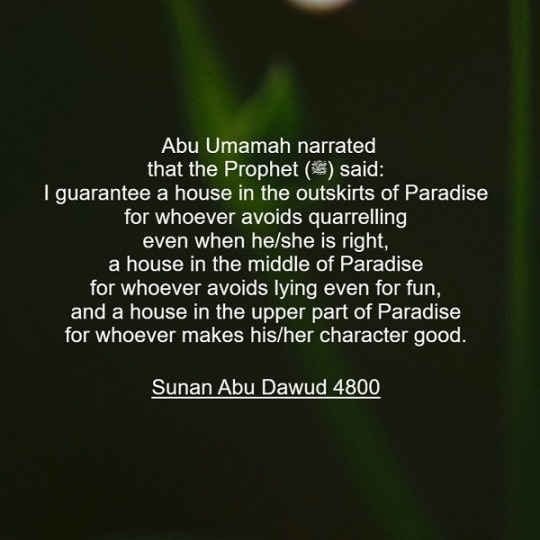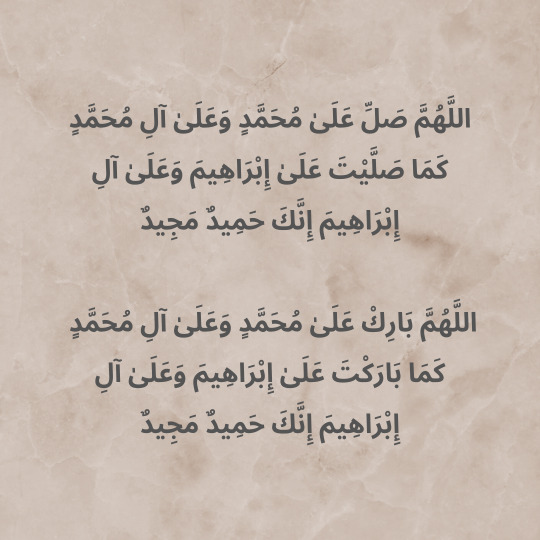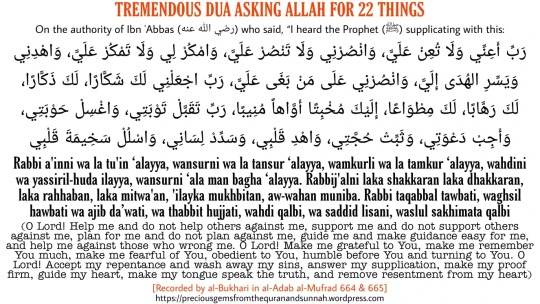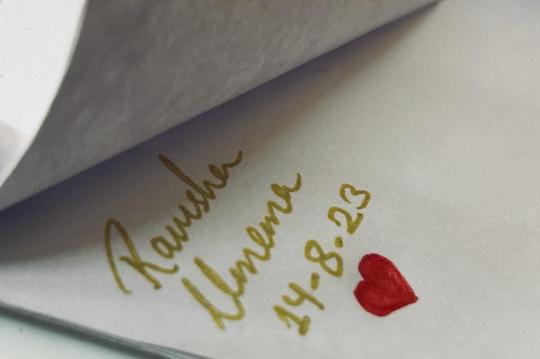#Sunan Abu Dawud
Text

From Sunan Abu Dawud
6 notes
·
View notes
Text

It was narrated from Aws ibn Aws that the Prophet (peace and blessings of Allah be upon him) said: “The best of your days is Friday. On that day Adam (peace be upon him) was created; on that day he died; on that day the Trumpet will be blown; and on that day all of creation will swoon. So send a great deal of blessings upon me (i.e. on Friday), for your blessings will be shown to me.” They said, “O Messenger of Allah, how will our blessings upon you be shown to you when you have turned to dust?” He said, “Allah has forbidden the earth to consume the bodies of the Prophets.” (Narrated by Abu Dawud, 1047; classed as sahih by Ibn al-Qayyim in his comments on Sunan Abi Dawud, 4/273; classed as sahih by al-Albani in Saheeh Abi Dawood, 925.
33 notes
·
View notes
Text
Sa'at Al Istijaba (Dua Acceptance Time )
Remember to pray for all our fellow Muslims!
Jabir relates that the Prophet ﷺ said:
“Friday is comprised of twelve hours. There is one in which a Muslim who asks Allah for something will have it granted to him.
Seek it in the last hour after Asr.”
[Abu Dawud 1048, Sunan An Nasa'ī 1390, Mustadrak Al Hakim 1032]
Also, remember to read Surah Kahf if you haven't yet!
77 notes
·
View notes
Text

Abu Huraira reported: The Prophet, peace and blessings be upon him, said, “The most excellent pre-fasting meal of the believer is dates.”
Source: Sunan Abi Dawud 1399
Grade: Sahih (authentic) according to Al-Albani
#islam#quote#allah#hijab#knowledge#inspirational quotes#islam4 life#islamicadvice#jilbab#la ilaha illa allah#ramadan2024#revert#ramadan mubarak#ramadan#islamicreminder#islamicart#islamicquotes#islamic#muslim revert#muslim reminder#muslimah#muslim
19 notes
·
View notes
Text
What is Charity? Shaykh Zubair bin Khalid Marjalvi حفظه الله said:
Charity doesn't just mean giving away wealth. There are other forms of charity:
1️⃣ Saying Subhan Allah, Alhamdulillah, Allahu Akbar, Astaghfirullah and La Ilaha Illalah is charity. [See: Sahih Ibn Hibban 3377]
2️⃣ Saying anything that is good - be it one word - is charity. [See: Sahih Al-Bukhari 2989]
3️⃣ Greeting every person you meet with the Salam is charity. [See: Sahih Muslim 720]
4️⃣ Greeting your brother with a smile and pouring water from your vessel into his vessel is charity. [See: Sunan At-Tirmidhi 1956]
5️⃣ Teaching others after having sought knowledge yourself is charity. [See: Sahih Muslim 1631]
6️⃣ Dealing between two people with justice and fairness is charity. [See: Sahih Al-Bukhari 2707, 2891, 2989]
7️⃣ Reconciling between people is charity. [See: Al-Mu'jam Al-Kabir 31, Sunan Abu Dawud 4919, Sunan At-Tirmidhi 2509]
8️⃣ Praying two Rakah's in the forenoon is charity on behalf for your bones. [See: Sahih Muslim 720]
9️⃣ Every step taken towards the Masjid to offer the compulsory prayer is counted as charity. [See: Sahih Al-Bukhari 2989]
1️⃣0️⃣ Refraining from harming others is charity. [See: Sahih Al-Bukhari 2518]
1️⃣1️⃣ Giving respite to someone in difficulty is charity. [See: Sunan Ibn Majah 2418, Musnad Ahmad 23046]
1️⃣2️⃣ Removing something harmful from a road or street is charity. [See: Sahih Muslim 1007]
1️⃣3️⃣ Commanding the good, forbidding the evil, helping the blind and deaf and picking/lifting the supplies or materials on behalf of a weak person is charity. [See: Sahih Ibn Hibban 3377]
1️⃣4️⃣ Helping a Muslim brother or a person in need is charity. [See: Sahih Al-Bukhari: 1445]
1️⃣5️⃣ Giving someone a ride in your vehicle is charity. [See: Sahih Al-Bukhari 2707, 2891]
1️⃣6️⃣ Taking care of someone's luggage is charity. [See: Sahih Al-Bukhari 2989]
1️⃣7️⃣ Feeding a hungry person is charity. [See: Musnad Ahmad 16647, Sahih Ibn Hibban 374, Al-Sunan Al-Saghir of Al-Bayhaqi 3410)
1️⃣8️⃣ Anything that is eaten from a tree or seed someone planted will be a charity for him. [Sahih Al-Bukhari 2320, 6012]
1️⃣9️⃣ Giving someone water to drink is charity. [See: Sunan Abu Dawud 1680, Sunan An-Nasai 3664]
2️⃣0️⃣ Spending upon your family is charity. [See: Sahih Al-Bukhari 55, Sunan Abu Dawud 1691, Sunan An-Nasai 3535]
2️⃣1️⃣ Having physical intimacy with your wife is charity. [See: Sahih Muslim 720]
2️⃣2️⃣ Benefitting yourselves from the wealth you earned from your own hands is charity. [See: Sahih Al-Bukhari 145]
2️⃣3️⃣ Spending on your relatives who are poor or aren't financially stable is charity. [See: Sunan An-Nasai 2582, Sunan Ibn Majah 1844]
2️⃣4️⃣ A date given from one's Halal wealth in Allah's path is charity. [See: Sahih Al-Bukhari 1410]
2️⃣5️⃣ Giving a she-camel or she-goat is the best charity. [See: Sahih Al-Bukhari 5608]
📚 The Different forms of Charity p.1-13 [Summarized]
19 notes
·
View notes
Text
Sunan an Nasa’i: The Book of Fasting, Book 22, Hadith 2393
It was narrated that Abu Salamah bin 'Abdur-Rahman said:
"I entered upon 'Abdullah bin 'Amr and said: O uncle, tell me what the Messenger of Allah said to you. He said: O son of my brother, I had resolved to strive very hard until I said: I will fast for the rest of my life and I will read the whole Quran every day and night. The Messenger of Allah heard about that, and came in to me in my house, and said: I have heard that you said, I will fast for a lifetime and will read the Quran. I said: I did say that, O Messenger of Allah. He said; Do not do that. Fast three days of each month. I said: I am able to do more than that. He said: fast two days of each week, Monday and Thursday. I said: I am able to do more than that. He said; Observe the fast of Dawud, peace be upon him, for it is the best kind of fasting before Allah; one day fasting, and one day not fasting. And when he made a promise he did not break it, and when he met (the enemy in battle) he did not flee." 'Ata said: "someone who heard him told me that Ibn 'Umar (said) that the Prophet said: 'Whoever fasts every day of his life, then he has not fasted."
#allah#islam#quran#dua#god#help#convert#revert#revert help#revert help team#muslim#muslimah#prayer#pray#reverthelp#converthelp#islam help#salah#religion#reminder#hijab#mohammad#new revert#new convert#new muslim#revert islam#convert islam#convert to islam#welcome to islam#how to convert to islam
12 notes
·
View notes
Text

Allah’s name Al-Witr— The One and Unique—is not mentioned in the Quran, but occurs in a narration of the Prophet salallahu ‘alayhi wa sallam. Al-Witr is the One, the Unique and Only. He is unique in His essence in all His attributes and there is nothing equal to Him in any way!
The One, Odd-numbered, and Unique
Witr comes from the root waw-taa-raa, which points to three meanings. The first meaning is to be odd (numbered), one and single. and the second is to be in succession. A third meaning is to deprive.
This root appears three times in the Quran in three derived forms. Examples of these forms are yatirakum (“will deprive you”), tatraa (“in succession”) and wal-watri (“and the odd”).
Linguistically witr means that which is odd-numbered, unever, not uniform or equable. Allah’s name Al-Witr is related in meaning to His beautiful names Al-Ahad and Al-Waahid. All indicate that Allah ‘azza wa jall is one, only and unique in His essence, all His powers, knowledge and abilities.
The Prophet salallahu ‘alayhi wa sallam said: Allah is witr (single, odd) and loves what is witr. So perform witr prayer. O followers of Quran, observe witr (prayer). [At-Tirmidhee, Abu Dawud]
Examples of Witr in Worship
In Islam the ways we worship are indicated to the finest details in the Quran and the sunnah of the Prophet Muhammad salallahu ‘alayhi wa sallam. An example is the number of times we are ought to carry out certain acts of worship, of which some are in witr (odd numbers) only.
Examples are the tawaaf (circulation) around the ka’bah, which is prescribed to be done seven times as well as the times Muslims go between Safaa and Marwaa as Hajj and Umrah ritual.
According to some ahadeeth the Night of Decree (laylatul qadr) is to be found in the last ten nights of Ramadhan, in the odd-numbered nights.
Another example is the amount of days which is sunnah to fast as one of the ways of the Prophet to fast was on ayaam ul beed – the white days – which are three days in the middle of each month.
The most known example regarding witr is the Witr prayer, which is a strongly recommended prayer of an odd-numbered rakaat to be prayed in the time after the ‘Esha prayer and before the Fajr prayer.
How Can You Live By This Name?
1. Keep reminding yourself of the uniqueness of Al-Witr.
The fact Allah ‘azza wa jall is one and unique in all He does, knows and gives is something we know, but sometimes forget to live by in our daily lives. Remind yourself each day Allah is the only one who can give you Paradise, so put Him first and not what people think or want of you or even what your ego (nafs) whispers to you!
2. Pray the Witr prayer. The Witr prayer is one of the greatest acts of worship that draw one closer to Allah. The majority of the scholars say is one of the confirmed sunan (a sunnah mu’akkadah) which you as a Muslim should observe regularly and not neglect. Imam Ahmad raheemahullah even said: Whoever neglects Witr is a bad man whose testimony should not be accepted. The Prophet said: Allah has prescribed for you a prayer (by which He may increase your reward), which is Witr; Allah has enjoined it for you during the time between ‘Esha prayer until dawn begins. [At-Tirmidhee, saheeh] Ask Allah Al-Witr to enable you to pray this prayer regularly.
3. Be unique.
As true Muslims we all share our belief in Allah Al-Witr alone, but this doesn’t mean we should not strive to be unique in our actions! Do your best to perform as many good deeds as you can, be creative and set up your own projects on the path of Islam and for the pleasure of Al-Witr and by the will of Allah, leave an unique legacy in this world which will count for you in the Herefter inshaa’Allah.
4. Know the meaning of tawheed and live by it.
Studying the meaning of tawheedullaah (the Oneness of Allah), its types and how to live by them is the most important branch of Islamic knowledge. Part of this knowledge are knowing the names and attributes of Allah ‘azza wa jall. At least spend one day a week of which you read from a trustworthy book about tawheed and its types and make sure to convey this knowledge to your children and family inshaa’Allah!
O Allah, Al-Witr, we know that you are one, single and unique. Help us to remind ourselves of Your oneness and turn to You only for all our needs and make us of those who consistently pray the Witr prayer. Increase our knowledge of tawheed and its types, aid us to live by them, and enable us to leave a unique legacy of ongoing good deeds for those who come after us until the day of judgement, ameen!
#allah#islam#revert help team#asma al husna#revert help#muslim#ayat#daily#allah’s name#dua#pray#prayer#salah#muslimah#hijab#religion#reminder#mohammed#new muslim#new revert#new convert#how to convert islam#converthelp#convert islam#become a muslim#welcome to islam#hadith#daily ayat#prophet#god
8 notes
·
View notes
Text
The Messenger of Allah, peace and blessings be upon him, said, “Inside the human being are three hundred and sixty joints, upon each of them charity is due.” They said, “Who can do that, O Prophet of Allah?” The Prophet said, “It is spittle in the mosque you clean, or something in the road you move to the side. If you cannot find anything, it is enough to perform two cycles of forenoon (duha) prayer.”
Sunan Abu Dawud 5242
10 notes
·
View notes
Text

Tremendous Dua asking Allah for 22 things
On the authority of Ibn ʿAbbas (رضي الله عنه) who said, “I heard the Prophet (ﷺ) supplicating with this:
رَبِّ أَعِنِّي وَلَا تُعِنْ عَلَيَّ، وَانْصُرْنِي وَلَا تَنْصُرْ عَلَيَّ، وَامْكُرْ لِي وَلَا تَمْكُرْ عَلَيَّ، وَاهْدِنِي وَيَسِّرِ الهُدَى إِلَيَّ، وَانْصُرْنِي عَلَى مَنْ بَغَى عَلَيَّ، رَبِّ اجْعَلْنِي لَكَ شَكَّارًا، لَكَ ذَكَّارًا، لَكَ رَهَّابًا، لَكَ مِطْوَاعًا، إِلَيْكَ مُخْبِتًا أَوَّاهاً مُنِيبًا، رَبِّ تَقَبَّلْ تَوْبَتِي، وَاغْسِلْ حَوْبَتِي، وَأَجِبْ دَعْوَتِي، وَثَبِّتْ حُجَّتِي، وَاهْدِ قَلْبِي، وَسَدِّدْ لِسَانِي، وَاسْلُلْ سَخِيمَةَ قَلْبِي
Rabbi a’inni wa la tu’in ‘alayya, wansurni wa la tansur ‘alayya, wamkurli wa la tamkur ‘alayya, wahdini wa yassiril-huda ilayya, wansurni ‘ala man bagha ‘alayya. Rabbij’alni laka shakkaran laka dhakkaran, laka rahhaban, laka mitwa’an, ‘ilayka mukhbitan, aw-wahan muniba. Rabbi taqabbal tawbati, waghsil hawbati wa ajib da’wati, wa thabbit hujjati, wahdi qalbi, wa saddid lisani, waslul sakhimata qalbi
(O Lord! Help me and do not help others against me, support me and do not support others against me, plan for me and do not plan against me, guide me and make guidance easy for me, and help me against those who wrong me. O Lord! Make me grateful to You, make me remember You much, make me fearful of You, obedient to You, humble before You and turning to You. O Lord! Accept my repentance and wash away my sins, answer my supplication, make my proof firm, guide my heart, make my tongue speak the truth, and remove resentment from my heart)
(One of the narrators) Abul-Hasan At-Tanafisi said: “I said to Waki’: ‘Shall I say it in the Qunut of Witr?’ He said: ‘Yes.'”
Note: It is a general dua which can be said anytime.
[Recorded by al-Bukhari in al-Adab al-Mufrad 664 & 665, Abu Dawud 1510, at-Tirmidhi 3551, Ibn Majah 3830, an-Nasai 6/151, Ahmad 3/452, no 1997, Ibn Hibban 3/277, Ibn Abi Shaybah 10/280, Abd b. Humayd 1/236, al-Hakim 1/519 and al-Shihab 2/344, Declared Sahih by al-Albani in Sahih al-Adab al-Mufrad, and Sahih Sunan Abi Dawud 1/414, al-Hakim graded the hadith sahih, al-Dhahabi agreed with him, at-Tirmidhi grades it hasan sahih]
This is a tremendous supplication which contains 22 pleas, all of which are among the most important things for which a slave can ask his Lord. They are also a means to his rectification, happiness and success in this life and the next.
This supplication is of such benefit that al-Bazzar (d. 749) states in his biography of Shaykh al-Islam Ibn Taymiyyah (d. 728), that this particular supplication made up most of his dua’s to Allāh.
#islam#quran#islamic#muslim#islamicquotes#pakistan#islamic group#muslim community#muslim countries#istanbul#islamicpost#islamicreminder#hadith#muslim ummah#makkah#allah#muslimah#jannah#alhamdulillah#instagram
90 notes
·
View notes
Photo

From Riyad as-Salihin
5 notes
·
View notes
Text
The Prophet (ﷺ) said:
“I guarantee a house in Paradise for one who gives up arguing, even if he is right; and a house in the middle of Paradise for one who abandons lying even when joking; and a house in the highest part of Paradise for one who makes his character excellent.”
[Sunan Abu Dawud 4800]
95 notes
·
View notes
Text
Narrated Abu Hurayrah: The Prophet ﷺ said: A man follows the religion of his friend; so each one should consider whom he makes his friend.
[Sunan Abi Dawud 4833]

8 notes
·
View notes
Text
Mari Kita (Perbaiki Kualitas) Shalat (Kita)
Ada alasan mengapa perintah shalat Allah turunkan saat Rasulullah dihadapkan pada selaksa ujian yang begitu memilukan, hingga dalam catatan sejarah tahun itu dinamakan tahun kesedihan (’amul huzni).
Diantaranya, agar manusia tahu bahwa shalat adalah penentram jiwa kala kesedihan, kekhawatiran, ketakutan, kebingungan, kehilangan, kesendirian, kepahitan, ketakberdayaan dan segala yang menyesakkan jiwa, Allah datangkan sebagai ujian.
Sesungguhnya ketenangan hati manusia Allah karuniakan lewat dzikirnya. Sebagaimana firman-Nya;
“(yaitu) orang-orang yang beriman dan hati mereka menjadi tentram dengan mengingat Allah. Ingatlah dengan mengingat Allah hati menjadi tenteram.” (QS.13:28).
Dan shalat adalah dzikir yang paling utama.
“Sungguh, Aku ini Allah, Tidak ada Tuhan selain Aku, maka sembahlah Aku dan laksanakanlah shalat untuk mengingat Aku.”(QS.20:14).
Saat dihadapkan pada ujian nan berat, carilah ketenangan lewat shalat. Mungkin solusi tak langsung didapati. Tapi dengan shalat, Allah karuniakan ketenangan hati. Kala hati tak lagi gusar, insyaAllah mudah temukan jalan keluar.
Karena shalat adalah pelipur lara. Sebagaimana Rasulullah shallallahu ‘alaihi wassalam bersabda; “dan telah dijadikan pelipur hatiku (kebahagiaanku) pada shalat.” (HR. An-Nasai [7/61] no. 3939, 3940, Ahmad [3/128] no. 14069. Dishahihkan Syaikh al-Albani dalam as-Silsilah ash-Shahihah [3/98 dan 4/424]).
Dan sebagaimana pula yang Beliau teladankan kepada kita, ummatnya; seba’da peristiwa isra’ mi’raj yang begitu dahsyat, tiap kali ada masalah, shalat adalah hal pertama yang dilakukan Rasulullah.
Dari sahabat Hudzaifah radhiyallahu ‘anhu, ia berkata: “Bila kedatangan masalah, Nabi shallallahu ‘alaihi wa sallam mengerjakan shalat.” (HR. Ahmad dalam al–Musnad [5/388] dan Abu Dawud [2/35]. Dihasankan al-Albani dalam Shahih Sunan Abi Dawud).
Saat engkau bingung dari mana engkau harus memperbaiki hidupmu, mulailah dengan memperbaiki shalatmu. Shalatlah, sebagaimana Shalatnya Rasulullah.
Rasulullah shallallahu ‘alaihi wa sallam bersabda, “Shalatlah kalian sebagaimana kalian melihat aku shalat.” (HR. Bukhari, no. 6008).
Lalu bagaimana cara memperbaiki shalat?
Petunjuk dari Rasulullah shallallahu ‘alaihi wassalam dalam hadits al-Musii’ fii shalatihi (orang yang jelek dalam shalatnya), yang diriwayatkan Rifa’ah bin Rafi’; “...Jika engkau ingin shalat (dengan sempurna), berwudhulah dan sempurnakan wudhumu....” (HR. An Nasa’i, no.1052. dishahihkan Al Albani).
Ternyata jika kita ingin memperbaiki shalat, kita harus mengawalinya dengan terlebih dahulu menyempurnakan wudhu.
Ada rahasia besar dibalik wudhu yang sempurna. Hati kan bergetar jika benar melakukannya. Janganlah wudhu sekedar wudhu. Tapi berwudhulah dengan ilmu. Pelajari kadar penggunaan airnya, pelajari apa saja yang wajib dibasuh dan apa saja yang membasuhnya termasuk sunnah. karena tidaklah ditetapkan begitu saja oleh Allah kecuali di dalamnya tersimpan mutiara-mutiara hikmah.
contoh sederhananya, do’a sesudah wudhu yang Rasulullah shallallahu ‘alaihi wassalam ajarkan pada kita itu redaksinya indah sekali jika benar-benar ditadabburi. Di mana di dalamnya kita meminta pada Allah:
(...اَللَّهُمَّ اجْعَلْنِيْ مِنَ التَّوَّابِيْنَ وَاجْعَلْنِيْ مِنَ الْمُتَطَهِّرِيْنَ...)
“Ya Allah jadikan hamba termasuk hamba-hamba-Mu yang bertaubat dan jadikanlah hamba termasuk hamba-hamba-Mu yang mensucikan diri”
Setelah wudhu kita sempurnakan, lalu kita panjatkan do’a itu dengan tulus dan ikhlas, perhatikan bagaimana cara Allah membalas:
(إِنَّ اللَّهَ يُحِبُّ التَّوَّابِينَ وَيُحِبُّ الْمُتَطَهِّرِينَ...)
“Sesungguhnya Allah mencintai orang-orang yang bertaubat dan mencintai orang-orang yang menyucikan diri.”(QS.2:222).
Indah bukan? baru di tahap persiapan menuju shalat, Allah sudah menyambut kita dengan sambutan yang begitu hangat.
Maka, jangan pernah berputus asa dari rahmat Allah. Jangan pernah merasa diri sudah tak layak untuk bertaubat. Betapapun telah banyak berbuat maksiat. Karena sesungguhnya kasih sayang Allah kepada hamba-hamba-Nya tak terbatas dan ampunan Allah itu amatlah luas.
Katakanlah : "Wahai hamba-hamba-Ku yang melampaui batas terhadap diri mereka sendiri, janganlah kamu berputus asa dari rahmat Allah. Sesungguhnya Allah mengampuni dosa-dosa semuanya. Sesungguhnya Dialah Yang Maha Pengampun lagi Maha Penyayang. (QS.39:53)
"Dan bersegeralah kamu kepada ampunan dari Tuhanmu dan kepada surga yang luasnya seluas langit dan bumi yang disediakan untuk orang-orang yang bertakwa" (QS.3:133).
Mari kita (perbaiki kualitas) shalat (kita). Awali dari hal-hal kecil saja dulu, sesederhana memulainya dengan (belajar) menyempurnakan wudhu.
Allahu a’lam bisshawab.
©rizqunkariim
3 notes
·
View notes
Text

The Prophet Muhammad ﷺ said: “Whoever imitates a people is one of them.” (Narrated by Abu Dawud, 4031; classed as sahih by al-Albani in Sahih Sunan Abi Dawud)
#islamic teachings#islamicquotes#muslim#welcome to islam#dua#prophet#allahuakbar#hadith#quraan#prophet muhammad#new year#celebrations#haram#muslimah#monotheism#mosque#deenoverdunya#deen#deenbot
3 notes
·
View notes
Text
Often, from Muslims you can hear the words: "I do not worship anyone or anything except Allah." They consider their religion to be the purest, along the way accusing everyone of idolatry and polytheism. But is Islam really like this?
The main place for Muslims is the cube (kaaba), located in Mecca, in Saudi Arabia. According to Islam, every Muslim must visit Mecca at least once in his life. The Muslim pilgrimage to the cub is called the Hajj. During the Hajj, Muslims dance around the pagan temple - the Kaaba. They pray and worship towards the Kaaba. And, most importantly, they honor their idols - the black stone of the Kaaba and the Yemeni corner of the Kaaba. Muslims kiss the black stone of the Kaaba during the Hajj and touch the Yemeni corner.
16 - It is reported from the words of Ibn ‘Umar that the Prophet (peace and blessings of Allaah be upon him) said:
"Indeed, TOUCHING THE BLACK STONE and the Yemeni Corner of the Kaaba COMPLETELY RELIEVES FROM SINS." Narrated by Ahmad 2/89.
The hadith is authentic. See Sahih al-Jami' as-saghir 2194./15922/
https://hadis.uk/sorok-xadisov-o-chyornom-kamne-i-vod..
961 Ibn 'Abbas is reported to have said:
“The Messenger of Allah (peace and blessings of Allah be upon him) said about the (black) stone: “By Allah, verily, ON THE DAY OF RESURRECTION, Allah WILL REVIEW THE BLACK STONE, and it will have two eyes with which it will look, and a tongue with which it will become speak. AND HE WILL WITNESS FOR THE FAVOR OF EVERYONE WHO TOUCHES HIM WITH THE TRUTH.”[1]”
Abu ‘Isa (at-Tirmidhi) said: “This hadeeth is good.”
This hadeeth was narrated by Ahmad 1/291, 307, 371, at-Tirmidhi 961, Ibn Majah 2944, Ibn Khuzayma 2735, Ibn Hibban 3704 and al-Hakim 1/457, who called the hadith authentic and agreed with him on this al-Dhahabi.
Sheikh al-Albani called the hadeeth authentic. See Sahih al-Jami' as-saghir 7098, Sahih at-Targhib wa-t-tarheeb 1144, Tahrij Mishkatul-masabih 2511.
https://hadis.uk/sunan-at-tirmizi-7-kniga-xadzhzha-xa..
18 - Narrated from the words of Nafi'a that Ibn 'Umar said:
“The Messenger of Allah (peace and blessings of Allaah be upon him) NEVER LEFT TOUCHING THE YEMEN CORNER AND THE (BLACK) STONE IN ANY OF THE BYPASSES (around the Kaaba).”
(Nafi') said: "And so did 'Abdullah ibn 'Umar." This hadeeth was narrated by Ahmad 2/115 and Abu Dawud 4876.
Hadith is good. See "Irvaul-galil" 1110.
https://hadis.uk/sorok-xadisov-o-chyornom-kamne-i-vod..
So what do we see?
We see that:
1) Muslims from all over the world come to one temple,
2) they dance around the temple,
3) kiss the black stone of the temple (kaaba), touch the black stone and the Yemenite corner of the temple (kaaba), because touching them completely eliminates sins,
4) Muslims believe that on the day of resurrection (a very, very important day), Allah will revive the black stone, and the black stone ITSELF will WITNESS for the benefit of everyone WHO TOUCHES it with the truth,
5) The main example for Muslims, the false prophet Muhammad, himself worshiped idols and "NEVER LEAVE TOUCHING THE YEMEN CORNER AND THE (BLACK) STONE IN ANY OF THE BYPASSES (around the Kaaba)".
As we can see, Islam is the most common idolatry, and since this idolatry is performed many thousands of kilometers from non-Muslims, many do not see this idolatry and some of the non-Muslims get the impression that Muslims really do not worship idols and that they are really zealous fighters against idolatry.
10 notes
·
View notes
Text
Staying away from trials and temptations (Fitan) is a good deed.
Narrated Abu Sa'id Al Khudri (Ra.), The Messenger of Allah (peace be upon him) as saying: "A Muslim's best property will soon be sheep which he will take to the tops of the mountains and the places where the rain falls, fleeing with his religion from the trials and temptations (fitan)."
[Sunan Abu Dawud, Hadith No. 4267]
.
عَنْ أَبِي سَعِيدٍ الْخُدْرِيِّ، قَالَ قَالَ رَسُولُ اللَّهِ صلى الله عليه وسلم " يُوشِكُ أَنْ يَكُونَ خَيْرُ مَالِ الْمُسْلِمِ غَنَمً�� يَتْبَعُ بِهَا شَعَفَ الْجِبَالِ وَمَوَاقِعَ الْقَطْرِ يَفِرُّ بِدِينِهِ مِنَ الْفِتَنِ " .
[سنن أبى داؤد ، رقم الحديث : ٤٢٦٧]
7 notes
·
View notes